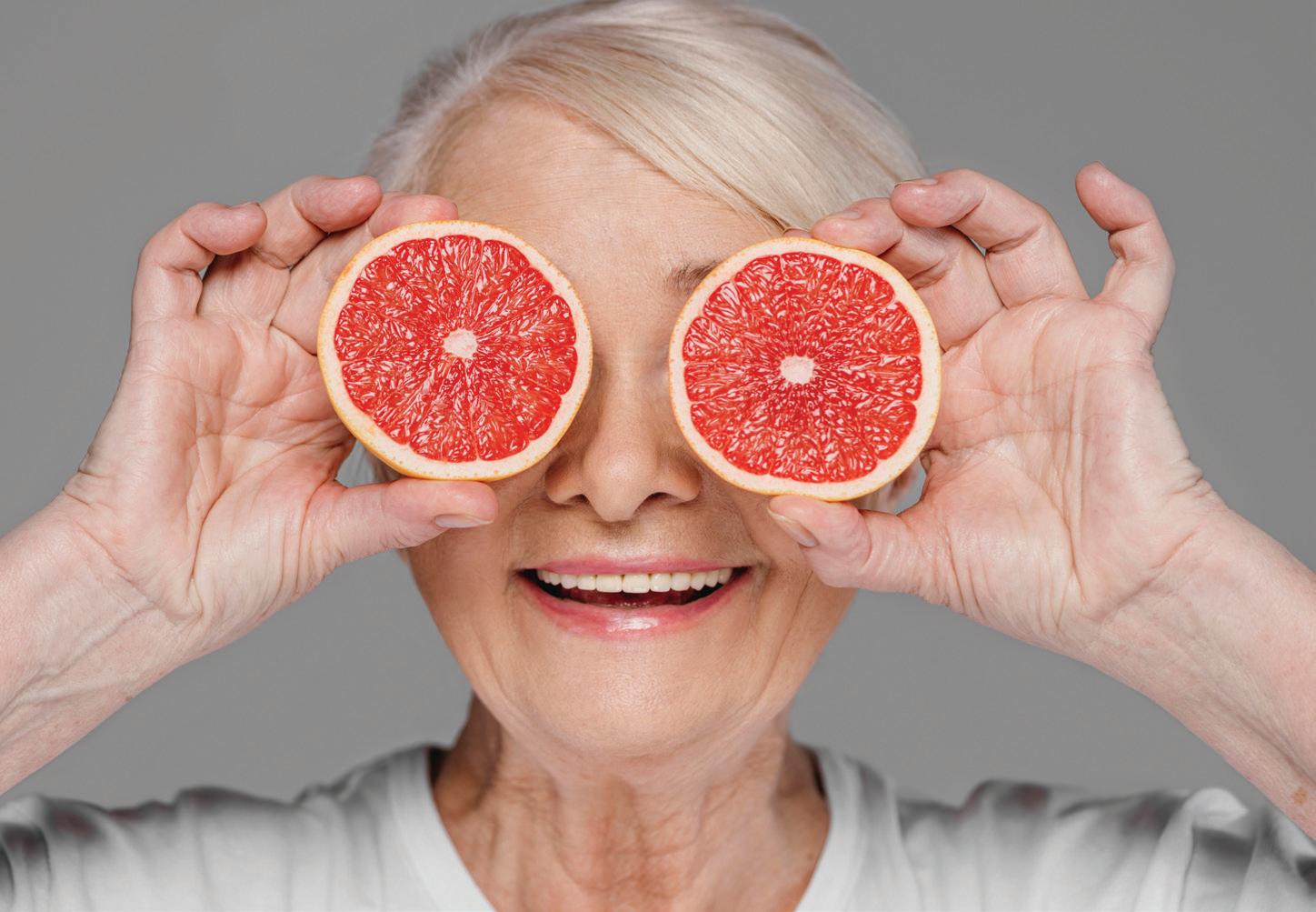
4 minute read
Nutrition & Eye Health - Fact or Fiction by Dr Baz Ghafourian
As the windows to our vision, the eyes are an ironically overlooked organ when it comes to nutrition. We have all heard that eating carrots helps you see better, but what truth is there to these rumours? When it comes to nutrition and eye health, many claims on social media and in popular cultures are unproven, while others are backed by solid evidence.
Let’s separate the facts from fiction:
FICTION: EATING CARROTS CAN RESTORE YOUR VISION
A widely held belief by many is that eating carrots improves your eyesight, especially at night. Though carrots are a healthy source of antioxidants, important for overall health, the association between carrots and eyesight originated from a myth.
During World War II, British Royal Air Force pilots first began using a new technology called radar to target and shoot down enemy planes. In order to keep this a secret, the visual accuracy of the pilots, especially at night, was attributed to eating carrots. While they can’t restore your sight, carrots still contain various nutrients essential to a healthy body and eyes. Carrots are rich source of Beta Carotene which is converted by the body to Vitamin A, an essential building block in ocular cells. A modern balanced diet will contain enough Vitamin A, so there is no need to consume excessive amounts of carrots.
FICTION: PROBIOTICS CAN CURE YOUR VISION PROBLEMS
While probiotics and fermented foods are beneficial to gut health, immunity and general health, there is no evidence that they may benefit your vision in any particular way. A diet rich in a variety of different fermented foods such as yoghurt, kimchi and miso may boost general health and thought to be more beneficial than probiotic supplements.
FICTION: COCONUT OIL CURES DRY EYES
Coconut oil has been spruiked by social media as a superfood cure–all, without much evidence to support these claims. Presently there is no evidence that consuming coconut oil is beneficial to dry eyes. In fact, coconut oil is high in Saturated fats and should only be consumed in moderation. Others have been known to rub coconut oil into their eyes. This is not recommended as anything other than sterile TGA approved eyedrops can cause serious infections and unknown side effects on the body.
FACT: FISH OIL IS GOOD FOR YOUR EYES
Omega 3 fatty acids are found in fish oil, flaxseed oil, borage oil which have been extensively used to help reduce the symptoms of chronic dry eyes, in combination with eye drops and other therapies. Omega 3 works by reducing inflammation and helping stimulate tear production but must be taken regularly to be beneficial. A diet rich in oily fish or Omega 3 supplements can be used to reduce symptoms of dry eye. Recently, eye drops have become available which combine Omega 3 with lubricants for topical use. When taking Omega 3 supplements, caution should be used if combined with blood thinners or in people with bleeding disorders.
FACT: BLUEBERRIES ARE GOOD FOR MACULAR DEGENERATION
This belief probably originated from the fact that Blueberries are a rich source of antioxidants, which are proven to help in the treatment of Age Related Macular Degeneration. Antioxidants have long been recommended to patient’s with Age Related Macular Degeneration through popular supplements knows as the AREDS2 formulation. The AREDS2 formulation contains antioxidants combined with zinc, lutein and zeaxanthin and is clinically proven to slow down the progression of Age Related Macular Degeneration in certain people.
FACT: JUNK FOOD IS HARMFUL TO YOUR EYES.
There is emerging evidence that diets high in processed foods, saturated fats, sugar and salt are harmful to eye health, such as by increasing the risk of macular degeneration, cataracts, glaucoma and dry eyes. In addition, a poor diet is a contributing factor to Type 2 Diabetes and High blood pressure, which are closely related to a host of eye problems.
In summary, common sense seems to prevail once again! There is no superfood cure for your eyes, but a balanced diet rich in green leafy vegetables, fruits, fish and good oils is the key to healthy eyes as we age.

Dr Baz Ghafourian graduated from the University of New South Wales with 1st Class Honors and subsequently worked for a decade across Sydney, Parramatta and the Central Coast. Baz is the director of Adrenaline Optometry, a state–of–the–art practice in Terrigal offering cutting edge eyecare.








